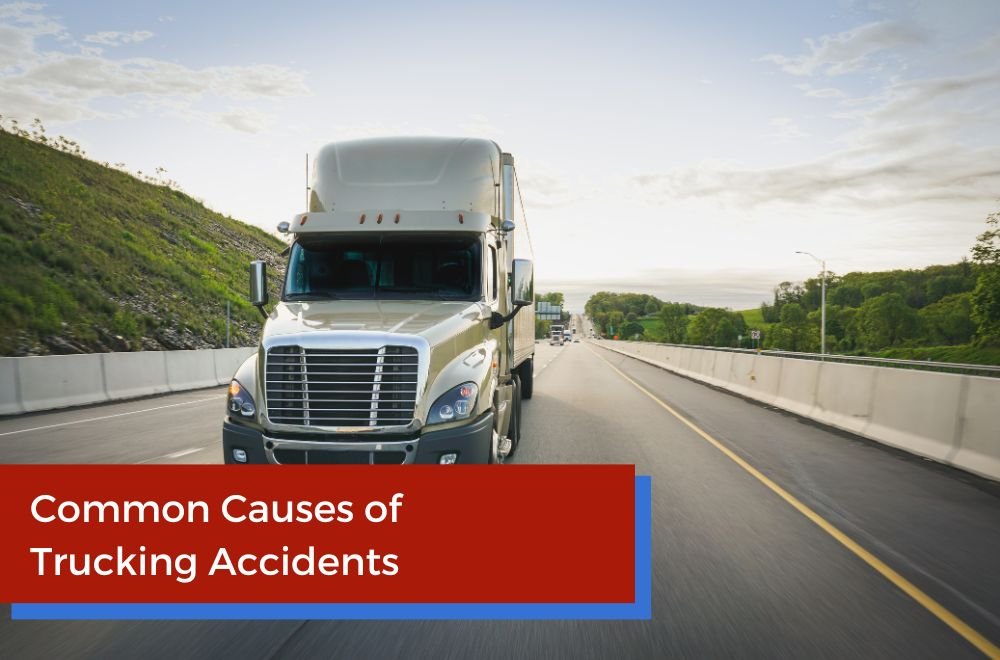Key Takeaways:
- Identifying the common causes of truck accidents can help in preventing them.
- Human error, mechanical issues, and environmental factors are the leading causes.
- Legal insights underscore the importance of compliance and driver awareness.
Table of Contents:
- Introduction
- Driver Error and Fatigue
- Mechanical Failures
- Weather and Road Conditions
- Improper Loading and Cargo Issues
- Speeding and Reckless Driving
- Conclusion
Introduction
Truck accidents pose significant concerns on highways and city roads, often resulting in severe consequences due to these vehicles’ massive size and weight. These collisions not only endanger lives but can also cause substantial property damage and disrupt traffic flow. Legal experts specializing in these incidents offer valuable insights into the common causes of truck accidents, helping stakeholders implement preventive measures. By understanding the factors contributing to these accidents, transportation companies, drivers, and policymakers can work together to enhance safety standards and reduce such incidents on the road.
Driver Error and Fatigue
Driver error is a predominant cause of truck accidents, with fatigue being a critical component. Truck drivers often face demanding schedules and long hours, leading to inadequate rest and impairing their judgment and reaction times. Additionally, fatigue can slow cognitive processing, making it difficult for drivers to respond promptly to changes in traffic conditions. A semi-truck accident lawyer in Lincoln, Nebraska might underline that exceeding the daily driving limits and neglecting mandatory rest breaks elevates the risk of an accident and exposes drivers and companies to severe legal consequences. Driver distractions, including the use of mobile devices and eating while driving, further contribute to accidents. Enhancing driver awareness and adherence to Hours of Service regulations, which dictate permissible driving hours and mandatory rest periods, can significantly mitigate these risks and improve road safety.
Mechanical Failures
Mechanical failures in trucking are a considerable factor contributing to road accidents stemming from various equipment malfunctions. These can include brake failures, which prevent drivers from stopping in time; tire blowouts, which can cause loss of control; and steering or engine failures, which may leave a truck stranded or veering off course. Each mechanical issue poses distinct hazards and highlights the critical nature of preventative maintenance. Regular maintenance checks and comprehensive pre-trip inspections are essential to identify potential mechanical problems before accidents occur. Legal experts emphasize that neglecting maintenance procedures jeopardizes safety and has significant legal ramifications for trucking companies. Adopting technological advancements, such as predictive maintenance software and telematics systems, can enhance the monitoring of truck components and ensure timely interventions, thereby boosting safety standards.
Weather and Road Conditions
Adverse weather conditions and poor road maintenance significantly contribute to the complexity of truck driving, often leading to accidents. Variables such as rain, snow, ice, and fog drastically reduce visibility and road traction, compelling even the most experienced drivers to struggle with vehicle control. In these situations, accidents frequently occur when drivers fail to adjust their speed adequately or react too slowly to evolving road conditions. Legal experts emphasize educating drivers about defensive techniques that emphasize caution during inclement weather. This education should include training on properly using anti-lock brakes and traction control systems. Furthermore, investing in advanced weather monitoring systems can help drivers and dispatch centers anticipate and navigate inclement weather, allowing for alternatives or delays when necessary to maintain safety.
Improper Loading and Cargo Issues
Improper loading of cargo can pose severe hazards on the road. An uneven weight distribution drastically affects a truck’s balance, increasing the likelihood of rollovers, especially during sharp turns or sudden maneuvers. Unsecured loads present another risk: they can shift while the car is in motion, destabilizing the vehicle or dropping onto the roadway, causing multi-vehicle accidents. Legal insights emphasize the importance of adhering to cargo securement standards to ensure loads are evenly distributed and anchored. This process prevents load-related accidents and shields companies from legal liability. Incorporating weigh stations and utilizing onboard sensors that monitor load distribution can enhance safety. Training loading personnel thoroughly on the proper techniques is critical, as is fostering an environment of accountability in which drivers and loaders verify cargo securement before each trip.
Speeding and Reckless Driving
Speeding and reckless driving are pervasive causes of truck accidents with profound implications for road safety. Trucks’ immense size and weight necessitate careful speed management, as these factors contribute to a truck’s momentum and dramatically increase its stopping distance. Reckless driving actions, including aggressive maneuvers such as overtaking on curves or tailgating, further elevate the risk of collisions by reducing the ability to react to sudden changes in traffic flow. Legal experts advocate for strict monitoring systems that track speed in real-time, providing instantaneous feedback to drivers and enabling fleet managers to enforce safety protocols. These systems, coupled with initiatives that promote responsible driving habits and rigorous enforcement of traffic laws, are essential in curbing unsafe behaviors on the road and fostering a culture of responsible driving within the industry.
Conclusion
Gaining a comprehensive understanding of the common causes of truck accidents is crucial for those aiming to enhance road safety measures. Human factors such as driver error and fatigue, mechanical failures, adverse weather, improper loading, and reckless driving all contribute to the prevalence of these incidents. Legal experts are pivotal in providing insights and strategies to mitigate these risks. Through continuous education, adherence to regulations, and technological advances, the trucking industry and its stakeholders can significantly reduce the likelihood of accidents. With a concerted effort toward improving safety standards, safer roads are within reach, protecting the lives of truck drivers and road users and ensuring a more efficient and reliable transportation network.

